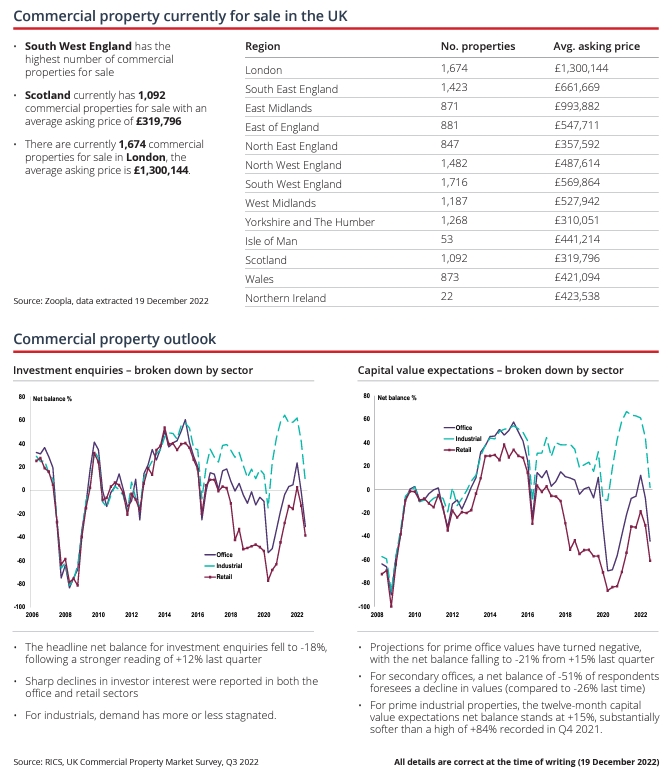OBR
forecasts long but shallow recession
Updated
projections from the Office for Budget Responsibility (OBR) suggest the UK is
facing a long but relatively shallow recession which will see households hit by
a record drop in living standards.
Chancellor
Jeremy Hunt unveiled the independent fiscal watchdog’s latest forecasts during
his Autumn Statement delivered to the House of Commons on 17 November. Mr Hunt
said the country was facing “unprecedented
global headwinds” before announcing the OBR’s new figures which show the UK
entered recession during the third quarter of this year.
The
updated predictions suggest the UK economy will expand by 4.2% across the whole
of 2022, but then shrink by 1.4% next year before returning to growth in 2024.
This implies that the downturn will be relatively shallow, if long by historic
standards.
Although
the recession is forecast to be comparatively shallow for the economy as a
whole, the household sector is expected to be hit particularly hard due to a
combination of factors including soaring energy and food prices, rising
interest rates and higher taxes. As a result, the OBR figures suggest
households are facing the largest fall in living standards on record.
Prior
to the Chancellor’s Statement, the latest gross domestic product figures from
the Office for National Statistics (ONS) had revealed that the UK economy
shrank in the three months to September. ONS said the economy contracted by
0.2% across the third quarter of the year driven by a decline in manufacturing
which was evident ‘across most industries.’
Survey
data also suggests the economy continued to shrink during the first two months
of the fourth quarter. The headline reading of S&P Global’s Purchasing
Managers’ Index, for instance,
sank to
a 21-month low of 48.2 in October and November’s preliminary reading rose only
marginally to 48.3. Any value under 50 represents economic contraction.
Last month, the Bank
of England (BoE) sanctioned a further increase in its benchmark interest rate
and said more rises were likely but not to levels that had been priced in by
financial markets.
At
a meeting which concluded on 2 November, the BoE’s nine-member Monetary Policy
Committee (MPC) voted to raise Bank Rate by 0.75 percentage points to 3.0%.
This was the eighth consecutive increase since December and the largest rate
hike since 1989. In addition, minutes to the meeting stated that a majority of
MPC members believe ‘further increases in
Bank Rate may be required for a sustainable return of inflation to target.’
However,
the minutes also pointed out that the peak in rates is expected to be lower
than markets had been anticipating. Indeed, in an unusually blunt message
delivered when announcing the rate decision, Bank Governor Andrew Bailey said,
“We can’t make promises about future
interest rates but based on where we stand today, we think Bank Rate will have
to go up by less than currently priced in financial markets.”
The
next interest rate announcement is due on 15 December and economists expect MPC members to sanction
another increase in rates – in a recent Reuters poll, more than three-quarters
of all economists surveyed predicted rates will rise by 0.5 percentage points,
with all of the other respondents predicting a 0.75 percentage point increase.
Comments
made during the last few weeks by a number of MPC members have also reaffirmed
the need for further rises in order to return inflation to the central bank’s
2% target. Some members, however, including BoE Deputy Governor Dave Ramsden,
have begun to mention the possibility of rate cuts at some point in the future,
should economic conditions diverge from current expectations and “persistence
in inflation stops being a concern.”
Markets (Data compiled by TOMD)
Global indices largely closed November in
positive territory. In the UK the FTSE 100 advanced, ending the month at its highest closing level
for five months, supported
by commodity and energy stocks. The blue-chip index closed the month up
6.74% to 7,573.05, while the mid-cap FTSE 250
gained 7.12% and the FTSE AIM ended
the month up 5.27%.
On Wall Street, markets closed sharply
higher following Federal Reserve Chair Jerome Powell’s speech on 30 November, indicating
the central bank might scale back the pace of its interest rate hikes as soon
as December. The Dow closed the month up 5.67% on 34,589.77, while the Nasdaq closed November on 11,468.00, up 4.37%.
At the end of
November, European Central Bank President Christine Lagarde said that a more
hawkish line on rising inflation was needed on the continent, suggesting that more
rate hikes are likely in the coming months. The Euro Stoxx 50 closed the month up 9.60%. In Japan, the
Nikkei 225 closed November up 1.38%.
On the foreign exchanges, the euro closed at €1.15 against
sterling. The US dollar closed the month at $1.19 against sterling and at $1.03
against the euro.
Brent
Crude closed the month trading at around $86 a barrel, a loss of 5.32%. Signs of an
oversupplied market earlier on in the month pushed prices lower but it
recovered in recent days as discussions on a Russian price cap continue and
government data showed US stockpiles plunging, while traders accelerated buying
amid optimism that China will soon loosen restrictions. Gold
is currently trading at around $1,753 a troy ounce, a gain of 6.99% on the month.
Record
pay growth still lags inflation
While the latest
earnings statistics revealed regular pay is now rising at a record level, the
data also showed wage growth is still failing to keep up with the rapidly
rising cost of living.
ONS
figures released last month showed average weekly earnings excluding bonuses
rose at an annual rate of 5.7% in the three months to September. This was the strongest recorded growth in regular pay
witnessed outside of the pandemic when the data was distorted by workers
returning from furlough.
However,
although the rate of pay growth is currently high by historic standards, wage
increases are still being outpaced by spiralling inflation – in real terms,
regular pay actually fell by 2.7% over the year to September. This represents a
slightly smaller decline than the record fall recorded three months ago but is
still among the largest falls since comparable records began in 2001.
The
latest official inflation statistics also revealed a further jump in price
growth during October, with soaring energy bills and food prices pushing the
annual figure to a 41-year high. The headline rate of Consumer Price Inflation
rose to 11.1% in the 12 months to October, a big jump from September’s rate of
10.1%.
Retail
sales rise in October
Official data shows
that retail sales staged a partial recovery in October although more recent
survey evidence suggests retailers remain relatively pessimistic about future
trading prospects.
The
latest ONS retail sales statistics revealed that total sales volumes rose by
0.6% in October, following a 1.5% decline during the previous month when shops
closed for the Queen’s funeral. Despite this partial rebound, ONS said the
broader picture was that sales are still on a downward trend that has been
evident since summer 2021 and that volumes remain below pre-pandemic levels.
Survey
evidence also highlights the current difficulties facing the retail sector,
with the latest Distributive Trades Survey from the CBI showing the net balance
of retailers reporting year-on-year sales growth falling from +18% in October to -19% in November. A similar proportion
also said they expect sales to fall this month suggesting most firms anticipate
little festive cheer this December.
Commenting on the findings, CBI Principal Economist Martin Sartorius said, “It’s not surprising that retailers are feeling the chill as the UK continues to be buffeted by economic headwinds. Sales volumes fell at a firm pace in the year to November, and retailers remain notably downbeat about their future business prospects.”
It
is important to take professional advice before making any decision relating to
your personal finances. Information within this document is based on our
current understanding and can be subject to change without notice and the accuracy
and completeness of the information cannot be guaranteed. It does not provide
individual tailored investment advice and is for guidance only. Some rules may
vary in different parts of the UK. We cannot assume legal liability for any
errors or omissions it might contain. Levels and bases of, and reliefs from,
taxation are those currently applying or proposed and are subject to change;
their value depends on the individual circumstances of the investor. No part of
this document may be reproduced in any manner without prior permission.












